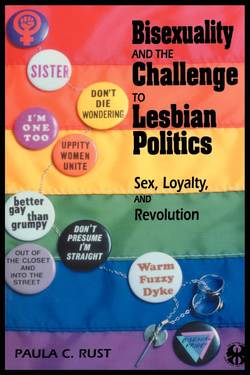Читать книгу Bisexuality and the Challenge to Lesbian Politics - Paula C Rust - Страница 29
На сайте Литреса книга снята с продажи.
Summary
ОглавлениеThe issue of whether or not bisexuality exists is a salient one among lesbians. Although the question “What is your opinion of bisexuality?” made no explicit reference to the issue of bisexual existence, more than half of lesbian respondents chose to address this issue more or less directly in their answers. This finding is all the more remarkable because many of those who addressed the issue believe that bisexuality exists. Within the context of a question that presumed bisexual existence, statements affirming bisexual existence were unnecessary. Apparently, the minority that does not believe in bisexuality is vocal enough to create a climate in which other lesbians feel compelled to assert their belief that bisexuality does exist.
In fact, the lesbians who participated in this study are as likely to believe that everyone or almost everyone is potentially bisexual as they are to believe that bisexuality does not exist. But the fact that no one except the proponents of the idea of a universal bisexual potential mentioned it indicates that this idea is less salient in discourse about bisexuality among lesbians. Apparently the idea of universal bisexuality, despite its popularity, has less impact on lesbian symbolic culture than the idea that bisexuality does not exist; the idea of universal bisexuality does not “hang in the air” as an idea to be reckoned with.
The finding that the question of bisexual existence is so important to lesbians is a bit surprising, given that the existence of bisexuality was not constructed as an issue in any of the lesbian and/or gay publications I examined in chapter 1. In The Lesbian and Gay Press, the issue is not whether bisexuality does exist, but whether bisexuality should exist, what its political implications are, and whether it belongs in The Lesbian and Gay Movement. The “issue of bisexuality” as it is presented in The Lesbian and Gay Press does not accurately reflect the issue as it is seen by the “lesbian-on-the-street.” However, by overlooking the issue of bisexual existence and focusing on the implications of bisexuality, The Press accurately, albeit implicitly, reflects the fact that most lesbians believe that there is something called bisexuality.
